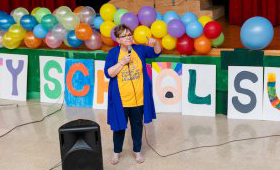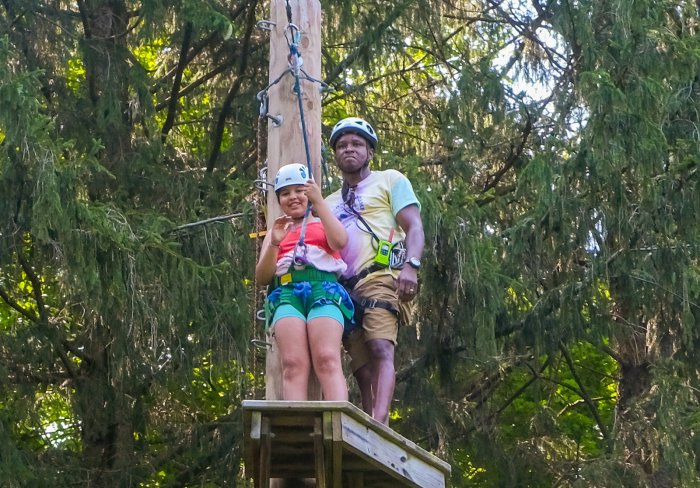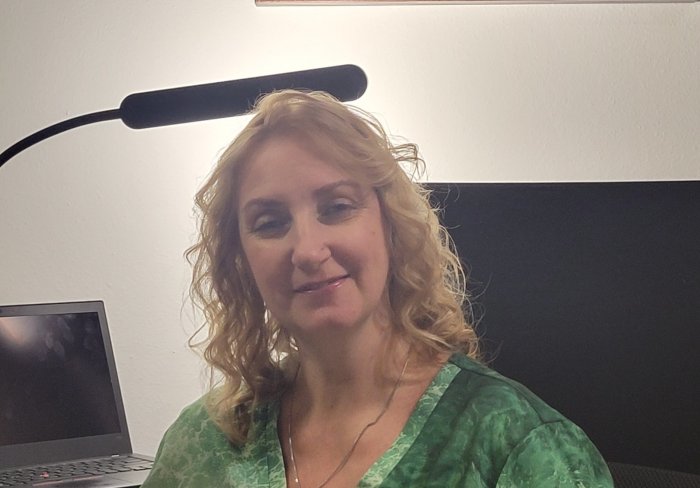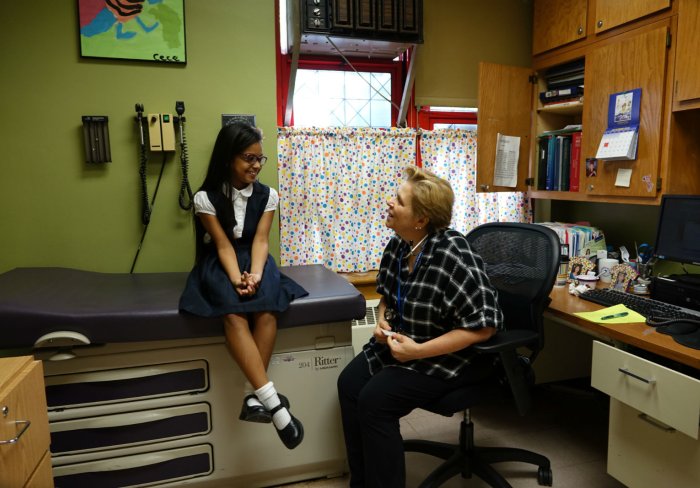February is Teen Dating Violence Awareness Month. Children’s Aid is lucky to have a team of in-house teen health experts who are committed to educating their peers about healthy relationships, especially because only 33 percent of teens in abusive relationships will tell someone that they are experiencing partner violence. So our Just Ask Me (JAM) Peer educators are sharing some critical information with us in conjunction with hosting their annual “Love Shouldn’t Hurt” teen event at the Next Generation Center.
What should teens know about partner abuse and dating violence?
Teens should understand that partner abuse is not just physical or sexual. Abuse is enforcing power or control over someone, and can also be emotional or mental, and more and more nowadays it involves technology.
What are some signs of unhealthy dating behaviors?
It can look like your partner is
- being overprotective or wanting to control how you dress, who you hang out with, etc.;
- displaying signs of jealousy;
- projecting their insecurities on you;
- wanting to monitor your phone, social media use, or your money; or
- not wanting to use protection during sex.
If someone is experiencing any of these signs in their current relationship, what should they do?
- Talk it out with your partner first. Communication is important and teens should be comfortable expressing their emotions in a safe and healthy way with their partner.
- Give yourself and your partner some space and consider what is best for you if things escalate.
What are things teens should keep in mind if experiencing different forms of abuse?
- Abuse grows over time, so it is important to recognize the more subtle signs of teen dating violence.
- You shouldn’t have to settle in a relationship, especially if you are unhappy.
- Know that nothing is wrong with you. You do not deserve to be abused in any way.
- Do not feel discouraged because you can’t walk away overnight. It’s not always so easy, so don’t be afraid to ask a friend or an adult for help.
- Partner violence doesn’t discriminate. Abuse can happen in any kind of relationship. The abuser can be any gender.
Where else can teens find help?
- They can call the National Teen Dating Abuse Helpline: 1-866-331-9474, which is staffed 24/7 by trained counselors and run by loveisrepect.org.
- They can text “CAS Healthy Teens” at 97-779, and speak to someone or get more information on teen health services.
- They can also stop by the Children’s Aid Bronx Health Services building at 910 E 172nd Street, third floor if they would like to speak with a health educator or case worker in person.
- If you are a teen and would like to learn about JAM Peer services, you can visit www.cashealthyteens.org/peer-education.







